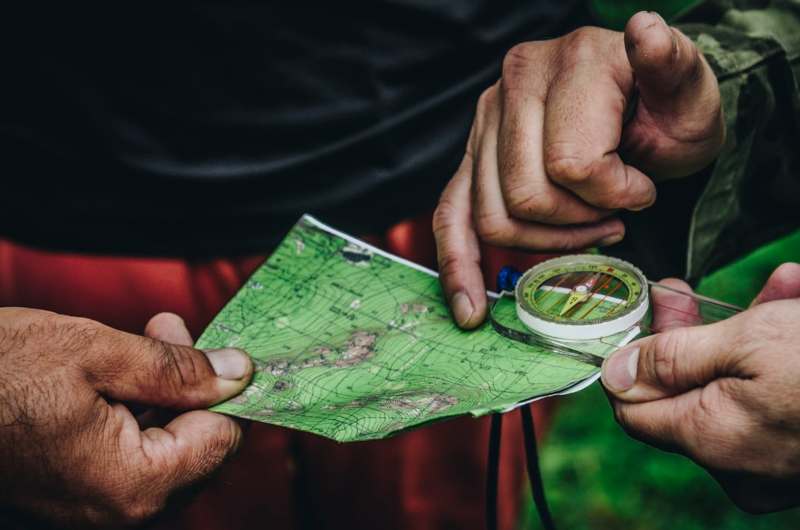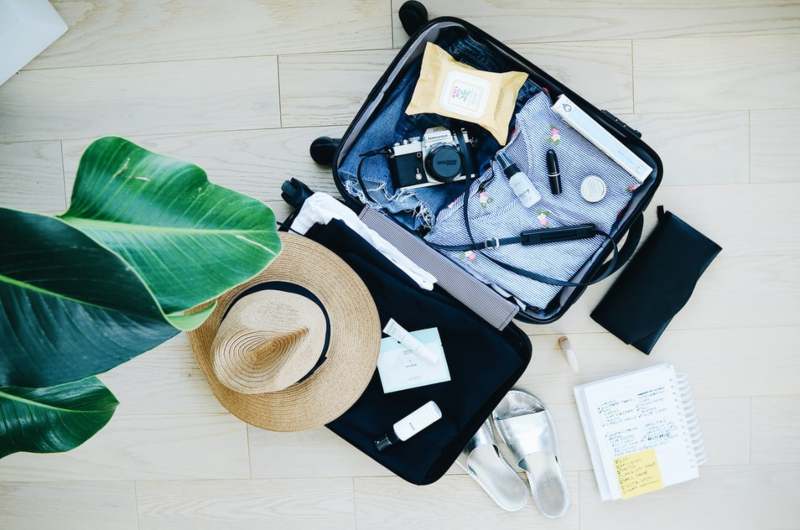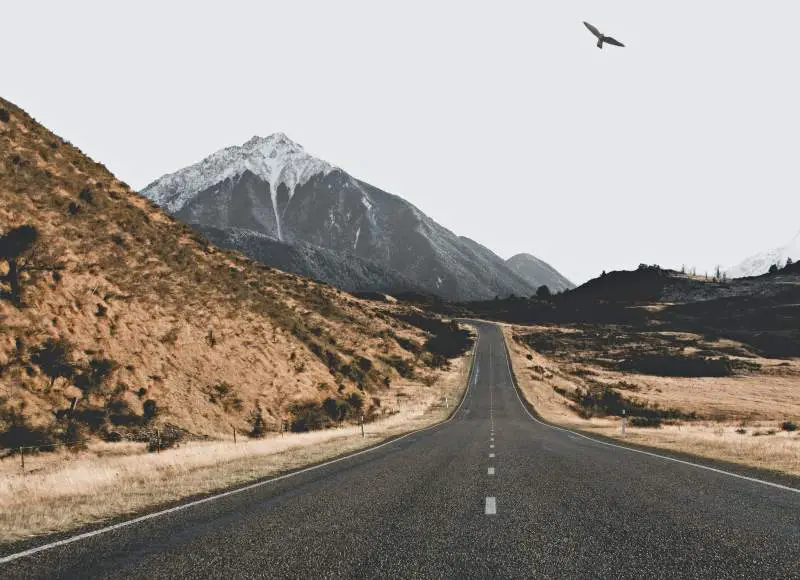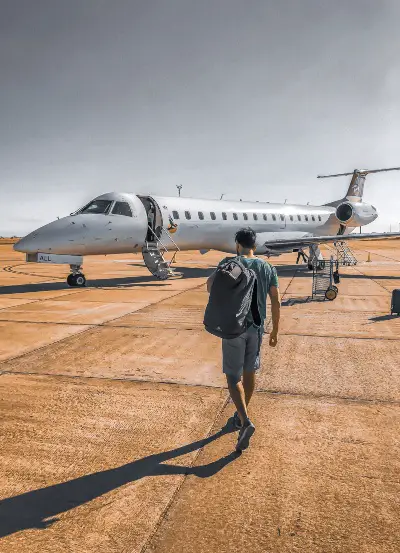Responsible Tourism: Why Is It Important + 10 Ways to Become a Responsible Traveler

Hey there fellow travellers. Today you get to learn everything you need to know about an important and very relevant topic of our time: Responsible Travel. What exactly is responsible tourism and why is it important? How to be a responsible tourist? How to get started and what are some real-life examples of responsible tourism?
I’m almost certain these travel questions have crossed your mind a number of times in your quest to live and travel more consciously and sustainably.
Continue reading to learn more, including answers to your most pressing questions in this regard….
There are an unlimited number of amazing and beautiful places around the world just waiting to be discovered. And because travel has become more convenient and accessible these days, it’s easy to reach and explore whole new environments in different cities and countries across the globe. On top of that the cost of travel is cheaper than it was decades ago.
But…
Frequent nonstop travel can and does have an impact on our planet…. especially when we don’t do our part in becoming a responsible traveler.
We, as travellers, need to understand the impact and role we have in acting and behaving more responsibly when traveling around the world. The intention is to leave a positive influence with a generous understanding of the destination and those who call it home.

So what is a responsible tourist and what exactly is the definition…
Responsible tourism means to travel without leaving much of a negative impact on nature and the local communities, and instead, preserving it more. It seeks to minimise and even reverse the effects of travel.
To put it simply, being a responsible tourist and practicing responsible tourism is all about awareness and mindfulness of thoughts, words, and actions.
Responsible tourism is also about showing respect.
Respect for the people, local community, culture, wildlife, structures, and the environment of the places you’re visiting.
>> Read next:
- 50 of the best words about travel with unusual meanings
- The TOP 50 songs about travelling to add to your playlist
- 10 essential reasons why travel is important (the benefits of travelling)
- The ultimate 100 travel quotes to fuel the wanderlust in you
- 10 best tropical islands to visit (when on a budget)
- How many countries have you been to? Here’s why you should NOT keep count
Let’s take a look at….
WHAT IS RESPONSIBLE TOURISM
Why Is it Important?

“Ecotourism means traveling with environmental awareness and visiting natural areas almost pure in order to enjoy and appreciate nature (such as the cultural attraction of past and present). This encourages the preservation, it has a few negative consequences and promotes an active and beneficial socioeconomic participation of local people”
(Elisabeth Boo, 1990)
It is no secret that travel is big business and has a major impact all around.
Did you know:
Travel and tourism accounts for over 10% of global GDP and 1 in 10 people are employed in this sector.
We all need to do out part.
Everything you do as a traveler, even if you’re just one person, has an impact on local communities and the environment. That being said, we might as well do our part to leave a beneficial impact on our chosen destination.
There are many ways on how to be a responsible traveller, but first we need to understand why it is important to practice being one.
Why is responsible tourism important?
Helps The Local Communities
The natural beauty of certain areas is mostly maintained by the locals. When you travel responsibly, you are helping local communities. You are doing this by supporting local goods and services.
In addition, by supporting the locals, you are helping in the creation of more jobs, encouraging a local and environmentally friendly economy.
In turn, this allows the expansion of economic benefits for the global community.
Preservation of the Environment
Looking after the environment is crucial both for both those who call those places home and for those who visit. If we don’t, there will be nowhere left to explore and enjoy.
A close encounter with wildlife may sound enticing, however oftentimes activities of this nature are actually exploiting animals and their natural habitats.
Traveling responsibly means consciously avoiding any experiences that involve wildlife and habitat exploitation.
Costa Rica is a world leader in sustainability and ecotourism. Often described as the happiest and most sustainable country on Earth, this Central American country’s incredible biodiversity, its focus on green initiatives, its comprehensive protected areas network, cultural awareness and respect for the environment makes it the most desirable country.
Have an Authentic Travel Experience
Traveling responsibly usually means wanting to have an authentic experience living as a local in a particular area. As a result, you’re helping in the preservation of local culture while authentically getting to appreciate how the locals live.
You may not be used to the culture of other countries; in some cases, you might not agree with them at all. However, that’s what being a responsible traveler is all about – lowering expectations, having an open mind, and respecting the cultural differences.
Now I know what you may be thinking:
It’s expensive to travel responsibly, isn’t it?
Well, I am here to assure you that being responsible tourists and more conscious in the way you travel does not mean you have to pay extra for this.
As with any product there is a plethora of price points and a range of travel options to choose from.
Sure, it may require a little more effort in the pre-trip research plan in finding and choosing the sustainable option. However, since the trip will be better for the places and communities you visit, this positive exchange is totally worth the extra effort required.
It is not difficult to determine which companies operate responsibly with the wide variety of tools on hand to determine which of those give back to their communities, reduce waste, observe their supply chains, and treat their staff well.
On the other hand, it is also worth noting that choosing to travel responsibly does not mean you have to give up comforts and rough it out. Every form and style of travel can be accomplished in a responsible way.
Check out these real life eco friendly holidays around the world for some travel inspiration and for examples of responsible tourism in action.
Responsible Travel vs. Sustainable Tourism
According to the World Tourism Organization, sustainable tourism is defined as:
tourism that takes full account of its current and future economic, social and environmental impacts, addressing the needs of visitors, the industry, the environment, and host communities.
So, while both concepts focus on improving and enhancing a destination through travel, sustainable tourism addresses this through the influence of stakeholders and leadership, while responsible tourism does this on an individual and small business level.

What is a responsible tourist?
I will be the first to admit, it’s hard to know where to start on your journey to travelling more responsibly and becoming a better traveller. Read on to discover how to become a responsible tourist.
Let’s also take a look at some important responsible tourism examples to get you pointed in the right direction…
Here are:
10 WAYS TO BECOME A MORE RESPONSIBLE TOURIST
Becoming a responsible traveller doesn’t have to be difficult. You have to be mindful of everything you do and think about incorporating positive changes to your usual travel habits. If you’re unsure of what to do to become a conscious traveler, here are some tips to get you started on the right track.
First up…
1 | DO NOT LITTER
This may be the most basic of all travel etiquettes, but is often overlooked by many tourists. Put your trash where it belongs.
Many countries do not have a sophisticated sanitation and trash infrastructure, and so it is essential to take the extra step to dispose your waste responsibly. It is downright rude not to do so, not only in your own country, but most especially if you’re visiting other countries. If you can’t find a nearby trash bin, keep it in your bag until you find one.
And if recycling is an option, take that extra step too.
As a responsible tourist, you can also limit your plastic use and reduce your waste as you travel by making sustainable choices in your travel gear.
For a responsible tourism example, instead of buying plastic water bottles in every destination, bring your own reusable water bottle and fill this up with filtered water as you go. You can also bring a portable travel water filter or a device, such as a SteriPen or LifeStraw, that allows you to clean your own water.
Another example of responsible tourism would be to avoid the use of plastic straws, that contribute a large portion of the waste in oceans. The solution to this would be to use a metal straw or no straw at all.
Speaking of the beach and ocean, it is so important to make use of reef-safe sunscreen. Normal everyday sunblock contains chemicals that, once in the water, are detrimental to coral and fish.
Zero-waste living while traveling is not that hard once you know what to do.
2 | DO YOUR RESEARCH
You may not be familiar with the rules and customs of each country you visit, which is why doing your research before traveling is a must to avoid doing something that might be offensive to other people. For instance, the normal revealing clothes you love to wear in your home country might be frowned upon in other places.
3 | BE HANDS OFF
This is an important reminder for everyone who likes to take photos of monuments. Understandably, you want to get that Instagram-worthy shot, but when you do, keep your hands off the monuments or statues.
Can’t get a good shot? Don’t push it just so you will have to get close or cross a barrier for your photoshoot. Keeping your hands off also applies when you’re walking around. Don’t pick flowers, don’t disturb rocks – or just don’t disturb flora and fauna in general.

4 | SUPPORT THE LOCALS
Money from tourism is an essential source of funding for many people and spending money at your destination is one of the best ways to imbue money directly into the local economy.
There are a couple ways you can support businesses that are setup by the local communities:
1) taste authentic cuisine in local restaurants;
2) when you need a tour guide, hire a local;
3) always tip appropriately
4) buy authentic products from locally owned and operated businesses.
One thing I always love to do to support local goods is to buy fresh from farmers’ markets and cook my own food. This way, I get to talk with the locals and buy fresh produce, which are interesting (and sometimes weird) in some countries. I get to taste fruits and vegetables that are not found in my home country plus I get to choose what goes into my food. It’s a win-win.
Community-based organisations are better than multinational or western ones. Show your support to these local businesses by spending money locally, where possible.
Want to know an easy and free way to show support to the locals?
SMILE AT PEOPLE.
It’s effortless and free, yet you’ll be surprised by the power of that smile. This friendly gesture has the ability to initiate conversations, open new doors, and start new friendships.
>> The ultimate list of:
Smile Quotes To Get You Inspired Right Here
5 | CHOOSE YOUR ACCOMMODATION WISELY
Eco-friendly accommodation options are on the rise as people are becoming more conscious about their travel habits.
At the same time, there are many establishments that claim to be eco-friendly (but they’re really not) to jump on the trend. So how do you spot a genuine “green accommodation”?
Keep in mind that being internationally or locally certified as “eco-friendly” is not the only criteria. Some hotels or accommodations may not have the certification, but are genuinely practicing sustainability.
To find these accommodation option, you have to put an effort into researching.
You can try using Google with keywords and then ask the local tourism board. You may also search for reviews from travelers who are also practicing sustainability. Or better yet, connect with like-minded people with apps like Couchsurfing, where you can find people who will point you in the right direction.
I am always happy to recommend sustainable places that I have visited during my travels. Feel free to send me an email or a DM via Instagram.

6 | GO OVERLAND
Travelling by flight comes at a high environmental cost, despite airlines being hard at work in trying to make airplanes more efficient. So choosing to go overland, where possible, is the sustainable option. It is often also the cheaper option, so you get to simultaneously save money while helping the environment. Who doesn’t like that, right?
On the same breath, take a walk or explore by bike once at your destination.
If you can, get around a city as you explore various attractions and sights by taking a walk or going biking. This not only lets you immerse in the surroundings, but it’s also a great exercise. On top of that, it’s more sustainable than driving in short distances. Taking local transport is also a great way to observe and connect with the locals.
If biking to the next town is not feasible, you can always opt to travel via group vehicles that conserve your footprint and minimize damage to the environment. A wonderful option is to ride a train or bus that runs on biogas.
>> Read these important flight tips:
13 things you should absolutely NOT do when flying
7 | STAY FOR LONGER PERIODS OF TIME
As mentioned, air travel contributes to carbon dioxide emissions, which is bad for the environment.
Think about having millions of people do that more frequently when they travel three times a week, for instance. That’s just too much pollution. Of course, this doesn’t mean you need to throw away the idea of traveling altogether. Instead, be more conscious about how you travel.
In this case of being a responsible tourist, stay for an extended period of time in your chosen destination. This way, you get to really experience the culture, mingle with the locals, and have more opportunities to discover off-the-beaten path destinations and some amazing hidden gems.
8 | CONSIDER A STAYCATION
Traveling and enjoying fun experiences don’t always have to mean booking an international or domestic flight. You don’t have to travel far from home and responsible tourists should be open to choosing places that are closer to home.
A couple hours drive from the city can take you to interesting places – some you may not have discovered yet. There are also many ways to enjoy your staycation – and not just booking a relaxing stay in a hotel. If you’re itching to travel, try exploring your town or city.
Here are a handful of brilliant staycation ideas to travel locally, as shared by fellow travelers.
9 | RESPECT PEOPLE + CULTURE
Respecting the people you meet goes a long way. This can be anything from showing interest to being polite in your interactions. It is important to take the time to research the customs, cultural norms, and the way of life of each place you intend on visiting.
Some cultures have rules about interacting with the opposite sex, others about showing the soles of your feet and so on. Knowing these nuances will not only avoid any awkward situations, but also highlight your character as a person, often setting the stage for an authentic, humbling, and open interaction with the locals.
It’s also common to take photos of people from different walks of life or seeing them in their local dresses. These photos would tell interesting stories and will always serve as a reminder of how wonderful your travel experience was.
However, you have to remember to respect the people by asking for their permission before taking any photos.
Converse with the people and it will become easier for you to ask for their permission. If you need to take photos of children, talk to their parents first.
Another way to respect locals is to never expect them to speak your language. Instead, learn some local phrases that will help you communicate with them.
>> Here is how to say
HELLO, GOODBYE, and THANK YOU in different languages around the world.
10 | AVOID ANIMAL TOURISM
Seeing wild animals you’d never normally see in your lifetime is a great opportunity. However, you need to be careful when there are tours involving animals, especially when they allow you to manhandle or cuddle with the creatures.
Posing with a chained tiger or riding an elephant may look cool, but be aware that most of the time, these animals are drugged just so they can be docile. Feeding wildlife also harms them in a way that not a lot of people realize. By doing so, you’re interfering with their natural diet, and make them develop a dependency on humans.
Riding animals as a tourist activity should be avoided, as far as possible.
Wildlife tourism can also be in the form of selling souvenirs made from animal skin, teeth, bones, or shell, so do not support shops that sell those.
A good way to experience wildlife is to observe them from afar in their natural habitat. Think about wildlife reserves and natural parks, which allow you to view the animals from a distance and not get near nor directly interact with them.

Final Thoughts
Responsible Tourism is about “making better places for people to live in and better places for people to visit.” Responsible Tourism requires that operators, hoteliers, governments, local people and tourists take responsibility, take action to make tourism more sustainable.
Cape Town Declaration 2002
Traveling is a wonderful experience that can give you valuable life lessons.
No matter what you call it — sustainable tourism, impact travel, green travel, ethical tourism, or ecotourism — responsible travel is highly important in minimising negative environmental, social, and economic impact while concurrently generating economic benefits for the local people.
It doesn’t matter whether you travel near or far; what’s more important is that you give some thought to your travel habits so that you can be a responsible traveler.
Plan accordingly, have fun, travel safe, wear a smile, ask questions, enjoy the journey, and best of all — live consciously and be mindful of everything you do.
I sure do hope you now have a better understanding of how to be a responsible tourist and the impact our choices have when it comes to exploring different parts of the world.
What are your thoughts on responsible tourism? How do you go about making better choices when you travel? Let me know in the comments ⬇
Happy travelling,
Rai
Looking for more travel inspiration? Check out some of these other posts:
- 200 of the best questions about traveling
- Travel inspiration in the form of the best short travel quotes
- Learn more about the world with these geography trivia
- Be sure to check out this checklist before traveling internationally
- My ode to fellow travellers: this one’s for you!
- Should you or should you not talk to strangers? Check out this post.
- What should I do with my life? Is there any purpose to it all?
- Is television ruining your life?






 New Here?
New Here? 












Wow! This could be one of the most helpful blogs we’ve ever come across on this subject. Actually fantastic. I’m also a travel specialist in this topic so I can understand your effort.
Thanks for the compliment!
I do agree that one way to observe animals like kangaroos on vacation, you must be respectful and watch from a distance only so as not to disturb them. I’ve been at home for far too long and I really want to go on a vacation soon. I think my travel experiences would be more meaningful if I get a guided tour guide since they would know where all the best spots are and they can teach us a little bit of the native language.
Yeah, it’s always good to find a balance between exploring on your own and having a guide to see the destination through the eyes of a local/expert. Thanks for your comment